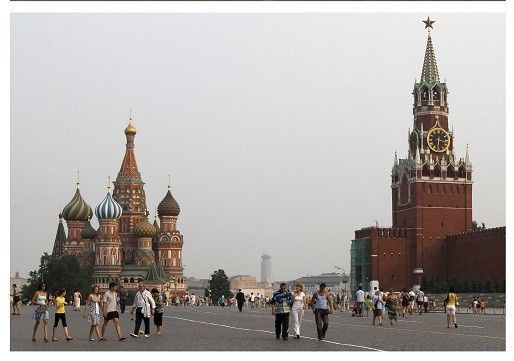Russia Will Maintain Existing U.S. Dollar-Denominated Investment Levels

The U.S., and that surely includes Congress, has had its share of bad news lately, but on Monday it received some decent news, for a change: Russia said it has no plans to make an immediate change to its dollar-denominated gold or foreign exchange reserves, following Standard & Poor's downgrade of U.S. Government debt, the RIA Novosti Agency reported Monday, citing a senior central bank official.
"In the short-term this will not affect us," the agency quoted First Central Bank Deputy Sergei Shvetsov as saying. Asked if the S&P downgrade would affect Russia's holdings over the medium and long term, Shvetsov declined to answer.
Russia has about one-third of its $535 billion in reserves invested in dollar-denominated instruments.
Standard & Poor's stunned stock, bond, and currency markets with its late Friday downgrade of the U.S. Government from AAA to AA+. The move is a controversial one, in part because none of the other major ratings agencies, Moody's and Fitch, have followed suit.
Russia's stance has been more-diplomatic that the world's other major power, China.
China, the U.S.'s largest creditor with $1.2 trillion invested in U.S. Government bonds, sent a communiqué critical of U.S. following the S&P downgrade. Overall, China has about $3.2 trillion in foreign exchange reserves.
"China,"has every right now to demand the US to address its structural debt problems and ensure the safety of China's dollar assets," said a Saturday Editorial by the Xinhua News Agency.
It was perhaps China's strongest critique of U.S. fiscal policy in the modern era, and it is safe to say it was expressed in part, for national self-interest reasons.
Many Asian nations like China depend on external partners (foreign countries) for demand to drive export growth, and global slowdown stemming from another wave of financial crisis triggered by U.S. fiscal policy mistakes would hurt that revenue stream.
Fiscal/Economic Analysis: The Russian stance is welcome news for U.S. policy makers in Washington.
The U.S. has "taken it on the chin" from much of the international community, during the past two weeks, and a considerable portion of it is deserved. International frustration over a delayed U.S. debt deal was the residue of years of built-up consternation concerning the U.S.'s inability to achieve a political consensus on the budget deficit.
In a nutshell, the world is finally rebuking the Democratic and Republican parties for their ideological feud that's delayed action on the budget deficit. Hence, the two parties are on notice: no longer will your shenanigans hurt just the domestic economy -- they can hurt the global economy, so the time to act is now: cut at least $3 trillion more from the deficit, not just the additional $1.5 trillion in cuts outlined in the U.S. debt deal.
Further, Russia's stance has to make U.S. policy makers feel good. Russia and China together, can call for a new international exchange mechanism / new global reserve currency and the movement may gain steam, but China alone can not.
© Copyright IBTimes 2024. All rights reserved.





















